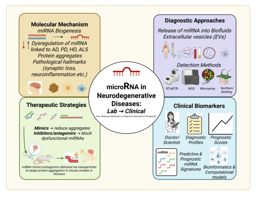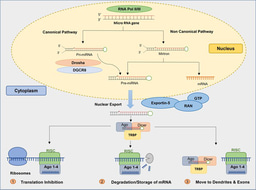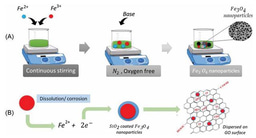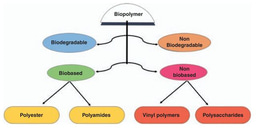Application of nanomaterials for enhanced production of biodiesel, biooil, biogas, bioethanol, and biohydrogen via lignocellulosic biomass transformation
Published in Bioengineering & Biotechnology

Explore the Research
 elsevier.com
elsevier.com
Just a moment...
Skip to main content
Unlocking the Future of Sustainable Biofuels: The Role of Nanomaterials in Biofuel Production
The transition to cleaner and greener energy is more urgent than ever, driven by the environmental and economic costs of fossil fuels. As global energy demands rise, the need for alternative energy sources like biofuels has become essential. A recent review article in Fuel (Volume 315, May 2022) sheds light on an exciting development: the application of nanomaterials in enhancing the production of biofuels like biodiesel, bioethanol, biogas, bio-oil, and biohydrogen through the transformation of lignocellulosic biomass.
Nanomaterials and Biofuel Production: A Promising Partnership
Lignocellulosic biomass, which includes agricultural residues, forestry waste, and other organic materials, has long been viewed as a key feedstock for sustainable biofuels. However, extracting useful biofuels from this biomass has proven challenging due to the complex nature of its cell wall structure. This is where nanomaterials come into play.
Nanomaterials, with their unique properties such as high surface area, solubility, and enhanced catalytic activity, offer an innovative solution to boost biofuel production. By integrating nanomaterials into biofuel production processes like transesterification (for biodiesel), hydrolysis (for biogas and bioethanol), and pyrolysis (for bio-oil), scientists are able to significantly increase yields and improve efficiency. These nanomaterials act as catalysts, reducing the need for harsh chemicals and optimizing energy consumption during the conversion of biomass into fuel.
Global Impact and Emerging Trends
The importance of biofuels cannot be overstated in the face of climate change and the depletion of fossil fuels. Biofuels not only reduce greenhouse gas emissions but also contribute to a more sustainable energy future. Countries like Brazil, China, the US, and those in Europe are already leading the charge in biofuel production, with bioethanol and biodiesel serving as key components of their renewable energy strategies. However, for biofuels to meet future demand, production processes must be optimized to reduce costs and improve efficiency.
Nanomaterials have emerged as a game-changer in this optimization process. By enhancing metabolic kinetics, improving catalytic processes, and increasing energy efficiency, these materials are helping to overcome the traditional challenges of biofuel production, including high raw material costs and inefficient processing techniques.
The Path Ahead: Challenges and Opportunities
While the potential of nanomaterials in biofuel production is immense, there are still several challenges that need to be addressed. The high cost of production and scalability remain significant obstacles. Moreover, more research is needed to fully understand how different types of nanomaterials—such as oxide metals, non-metal oxides, and carbon-based materials—interact with microorganisms and enzymes to optimize biofuel yields.
Despite these hurdles, the integration of nanomaterials in biofuel production is undeniably a step toward more sustainable and economically viable energy solutions. As research continues and the technology matures, nanomaterials will likely play a pivotal role in making biofuels a central part of the global energy mix.
What's Next?
Looking ahead, we can expect more breakthroughs in nanomaterials, especially as researchers develop more efficient catalysts and fine-tune the size, shape, and composition of these materials. Advances in nanotechnology, along with better understanding and application of biofuel production processes, will pave the way for a greener future.
If you're interested in exploring more about the role of nanomaterials in biofuel production, check out the full study here: https://doi.org/10.1016/j.fuel.2021.122840





Please sign in or register for FREE
If you are a registered user on Research Communities by Springer Nature, please sign in
Excited to share this article on the role of nanomaterials in boosting biofuel production! We dive into how nanotechnology enhances the efficiency and sustainability of converting lignocellulosic biomass into biodiesel, bioethanol, biogas, and more. Looking forward to your thoughts and discussions! https://doi.org/10.1016/j.fuel.2021.122840